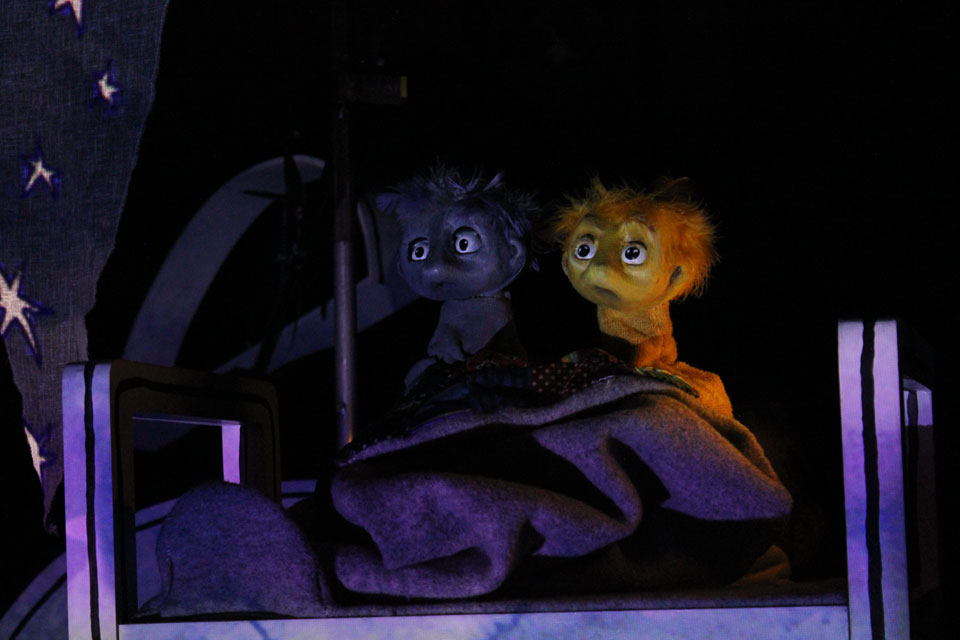The third day of the festival opened with two evocative performances for young audiences: Pan by Olga Zecheva (ages 3+) and Don’t Wait for Me by Vera Rozanova (ages 6+). Both productions showcased deeply personal visions and offered contrasting yet equally resonant theatrical experiences.
Pan, directed and performed by Zecheva with the support of Alek Ćurčić and produced by Teatro "Plus" from Gijón, Spain, unfolds like a lyrical fable. Accompanied by the gentle chirping of birds and an evocative score by Jose Roman Feito, the performance is set in a whimsical space of flowing curtains and ribbons. Zecheva, dressed in folkloric attire (costume design by Azucena Rico), enters carrying a mysterious bundle—symbolic of life’s core elements. Through the presence of Earth, Air, Water, and Fire, seeds sprout, grain is ground, and dough is kneaded. In Spanish, pan means bread—a more grounded and literal interpretation than the nature god some might expect.
A particularly memorable moment comes when Zecheva shapes a pliable dough face, an almost magical transformation of matter into meaning. Yet to become truly human, the dough gives way to a baby doll—charming, though perhaps limited in expressiveness. By the end, the dough returns, and a loaf is finally baked. It’s a cyclical and poetic gesture, though it left me pondering that familiar question from school: “What did the poet mean by this?”
Don’t Wait for Me, by contrast, is a hauntingly tender exploration of displacement and the longing for home. Created and performed by Vera Rozanova, and produced by La neige sur les cils (Nantes, France), the play blends French, English, and Serbian, creating a linguistic patchwork that mirrors its theme of searching across borders.
Using simple yet expressive hand puppets (designed by Lucas Prieux) placed on a specially constructed stabile-mobile (by Lucille Reguerre), Rozanova tells a story of deep emotional resonance. The visual world—projected images by Samy Barras and music by Thomas Demay—wraps the stage in a warm, melancholic embrace. The puppets, though minimal in design, brim with charm and depth.
Rozanova’s solo performance is extraordinary. Through subtle gestures, vocal shifts, and precise movement, she animates a full emotional world and brings each puppet to life as if part of a larger ensemble. Rarely have I seen a performer command such empathy and attention alone on stage.
One puppet in particular—a yellow house with legs and blue-laced sneakers—deserves a treatise of its own. It’s the kind of image that lingers, both playful and profound.
Tastes may differ, but I could gladly watch this poetic search for home again and again—homes that run away, that fly, and those who are left behind to grieve, endure, and hope.
Olga Vujović




